Vocabulary development Phonics Worksheets for Ages 4-8
19 filtered results
-
From - To
Discover our engaging Vocabulary Development Phonics Worksheets designed specifically for children aged 4-8! These worksheets help young learners expand their vocabulary while reinforcing phonics skills in a fun and interactive way. Each activity focuses on letter sounds, word recognition, and reading comprehension, providing a substantial foundation for early literacy. With colorful illustrations and captivating exercises, our worksheets cater to diverse learning styles, making vocabulary building enjoyable. Whether in the classroom or at home, these resources are perfect for nurturing curiosity and boosting confidence in young readers. Unlock the joy of learning with our vocabulary development worksheets today!
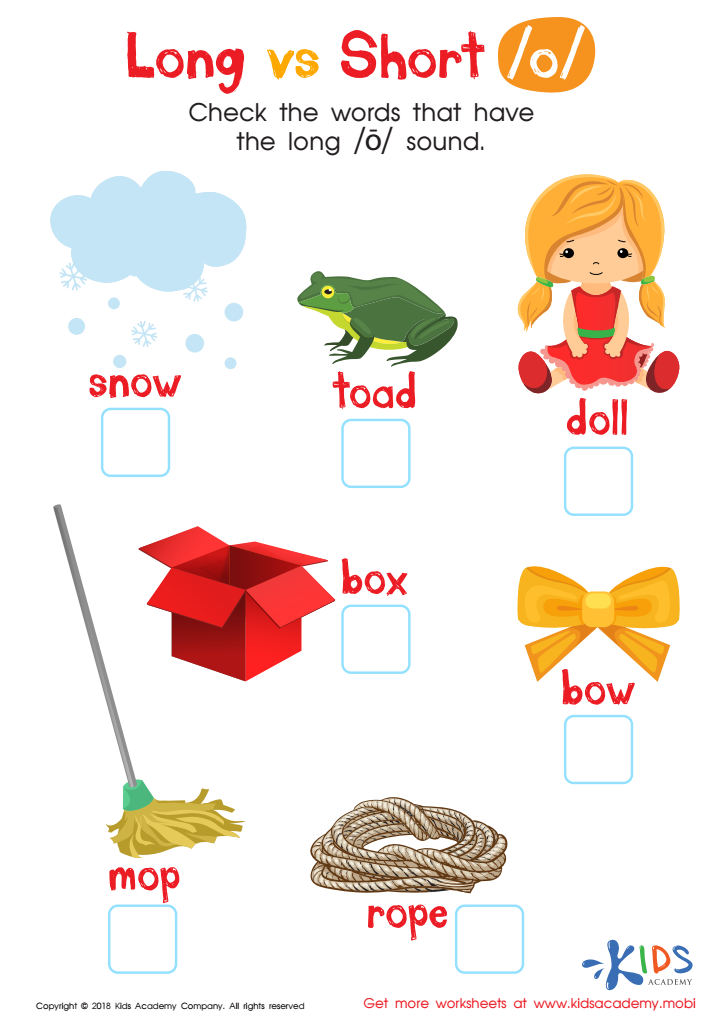

Long vs Short O Reading Worksheet
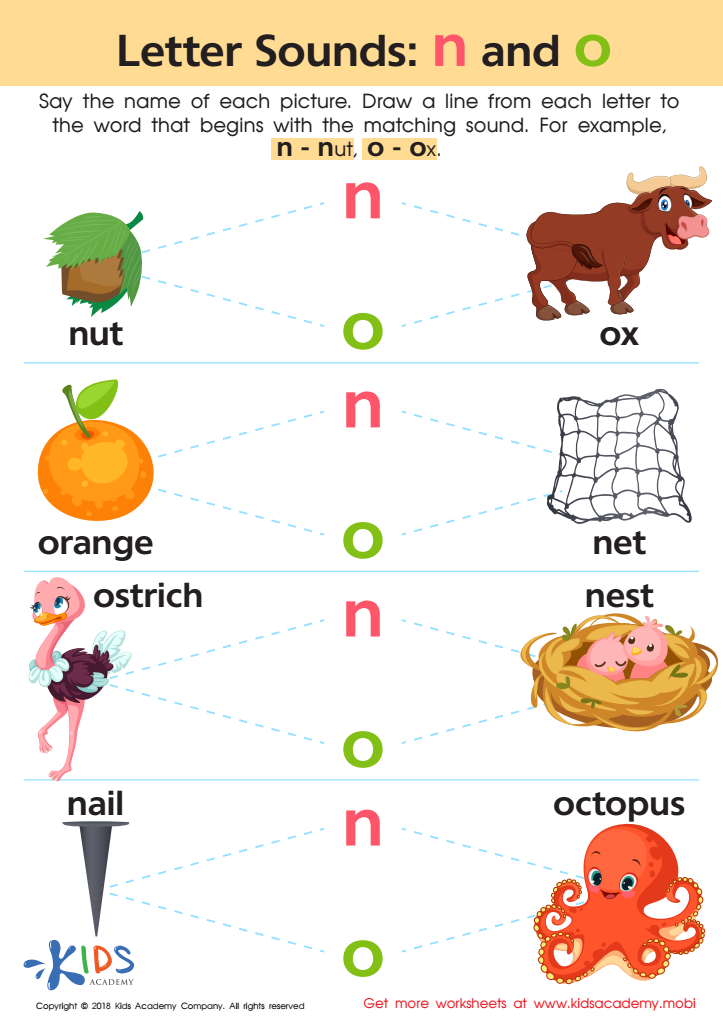

Letter N and O Sounds Worksheet


Phonics and Word Recognition: Assessment 3 Worksheet


Vowel and Consonant Sounds: Assessment Worksheet
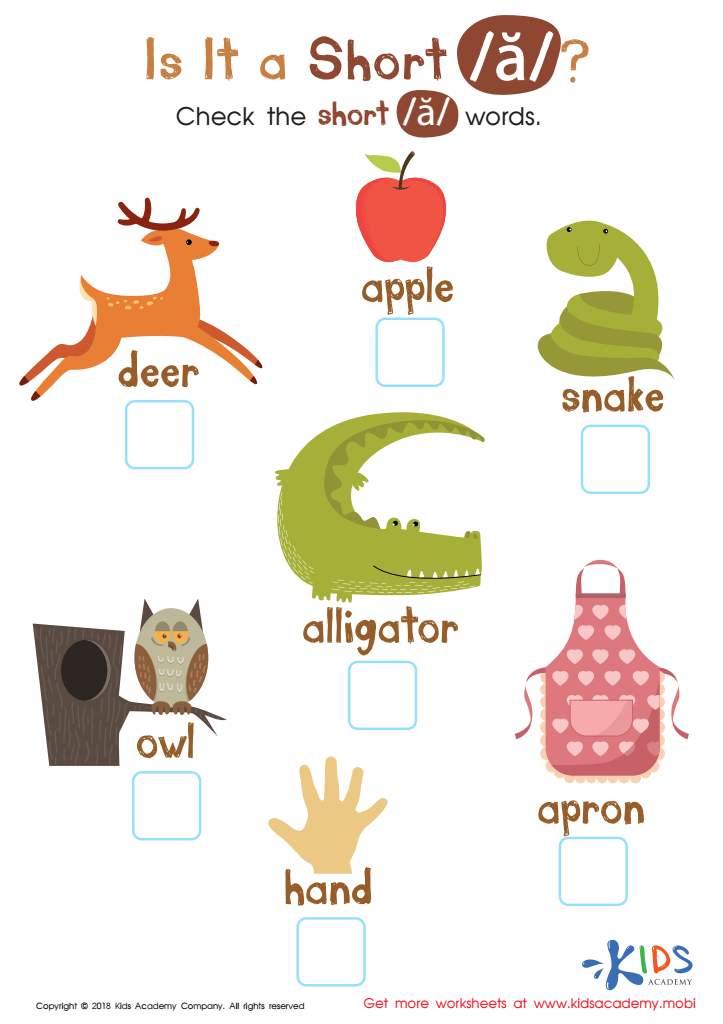

Is It Short A? Reading Worksheet
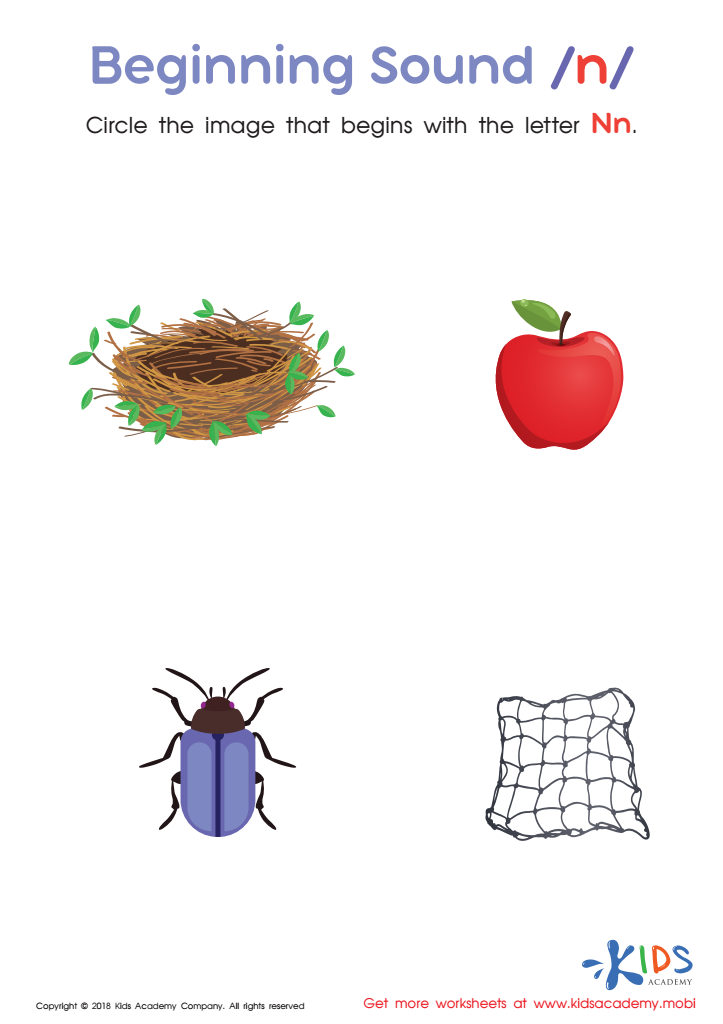

Beginning Sound «n» Worksheet
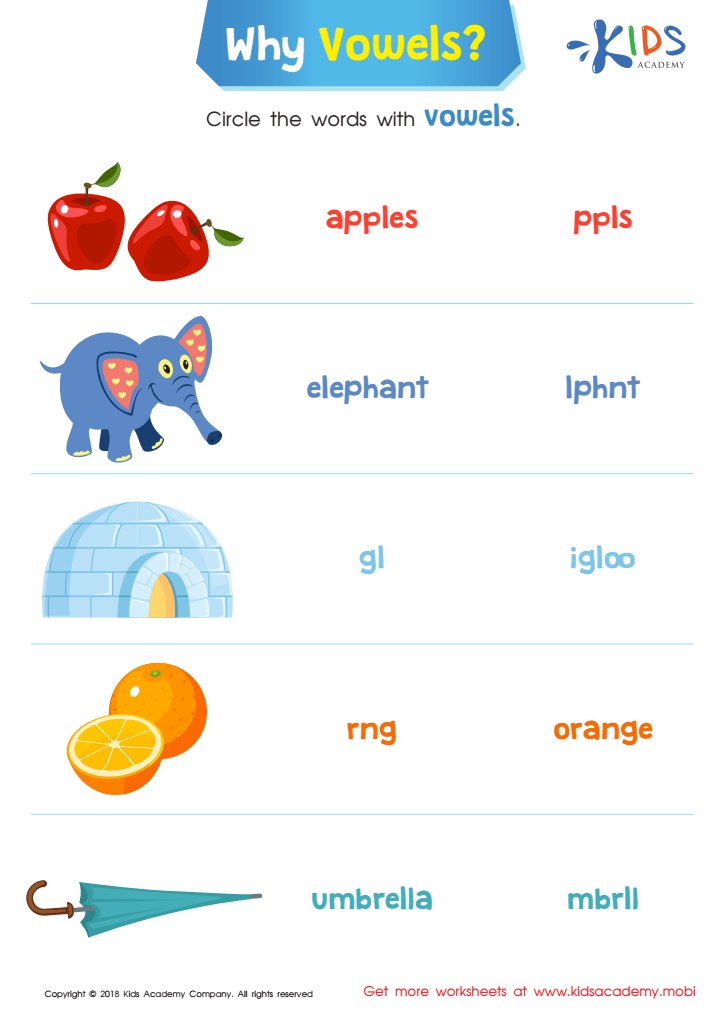

Why Vowels? Reading Worksheet
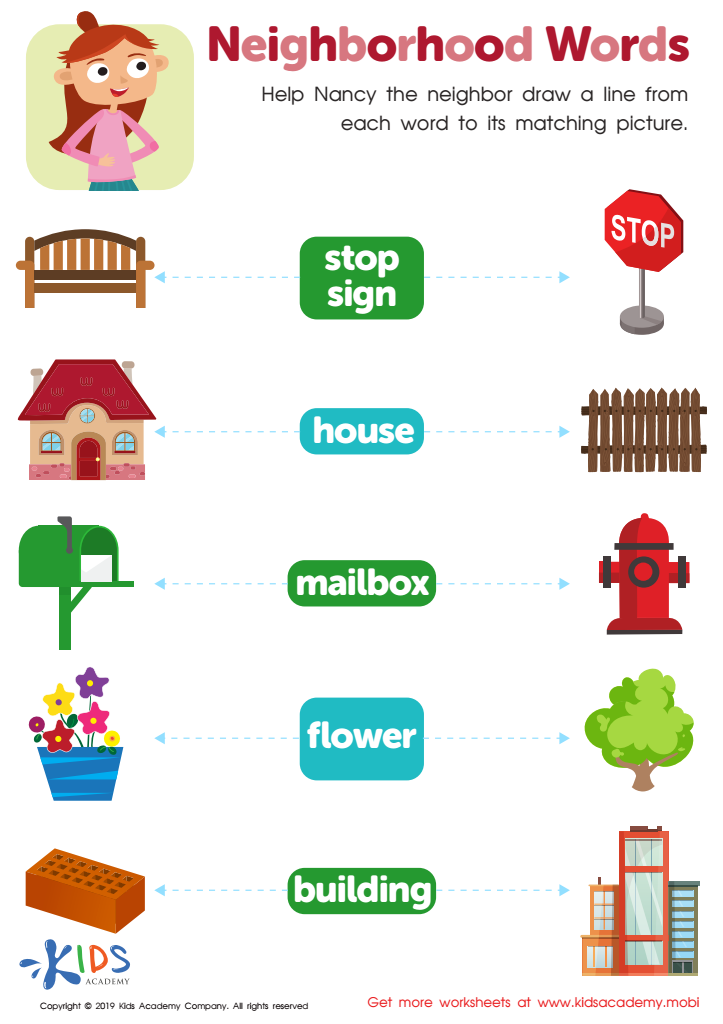

Neighborhood Words Worksheet
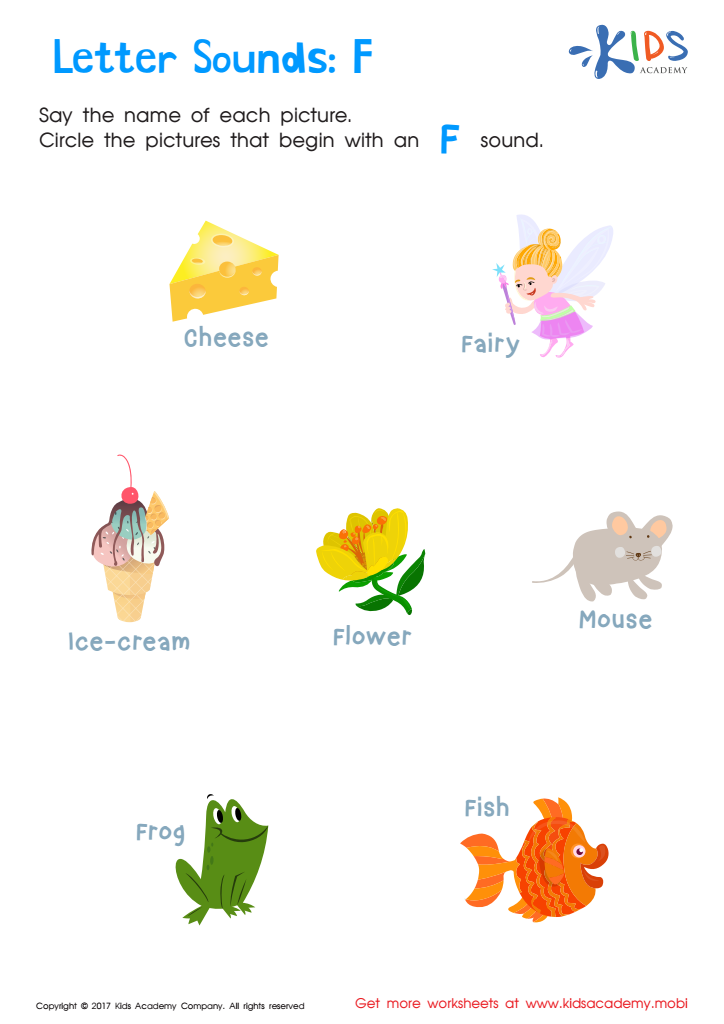

Letter F Sounds Worksheet
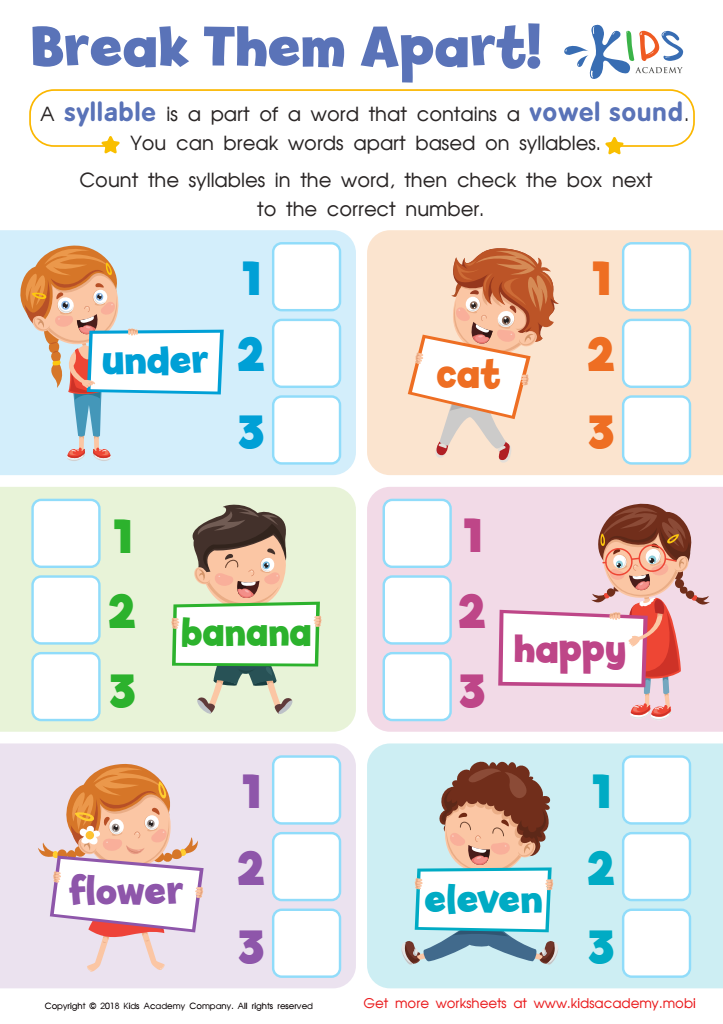

Reading: Break Them Apart Worksheet
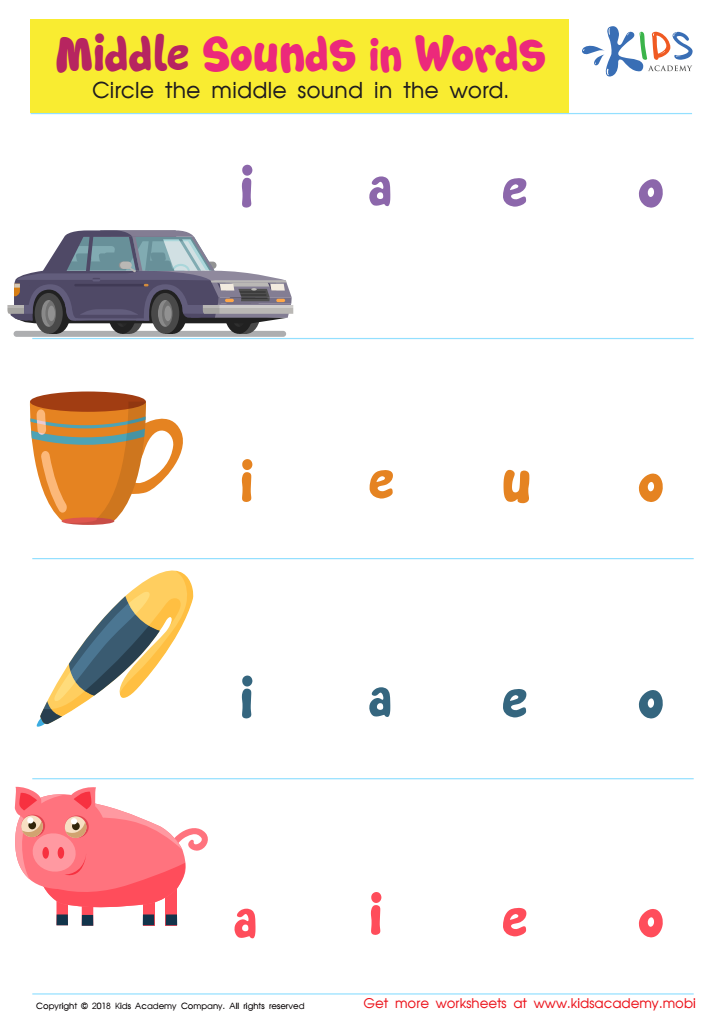

Middle Sounds in Words Worksheet
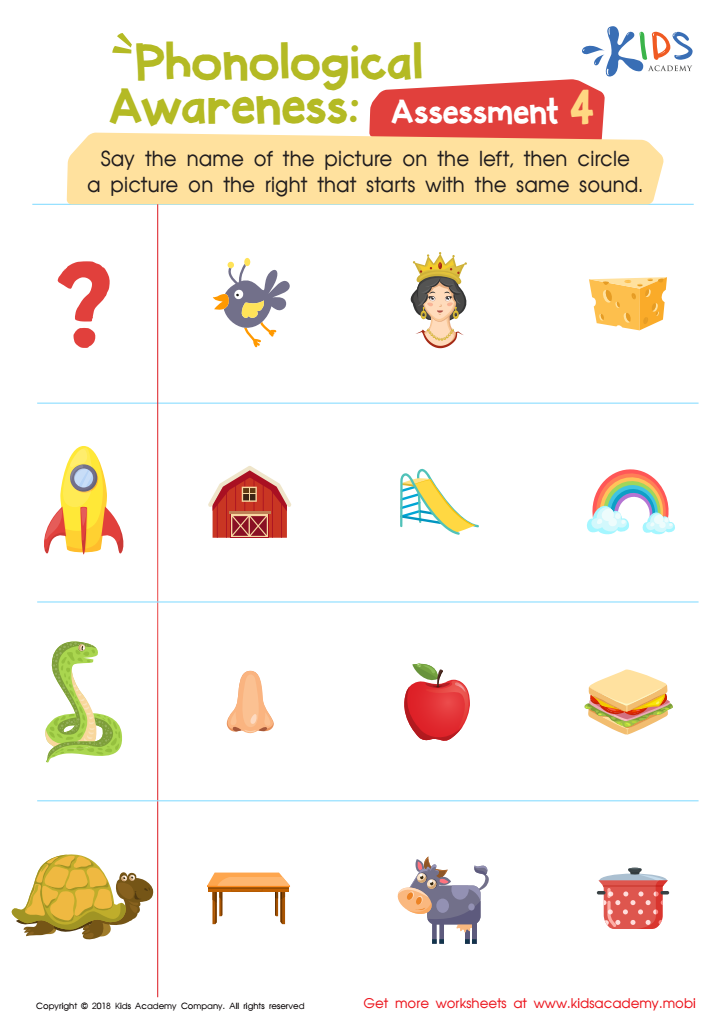

Phonological Awareness: Assessment 4 Worksheet
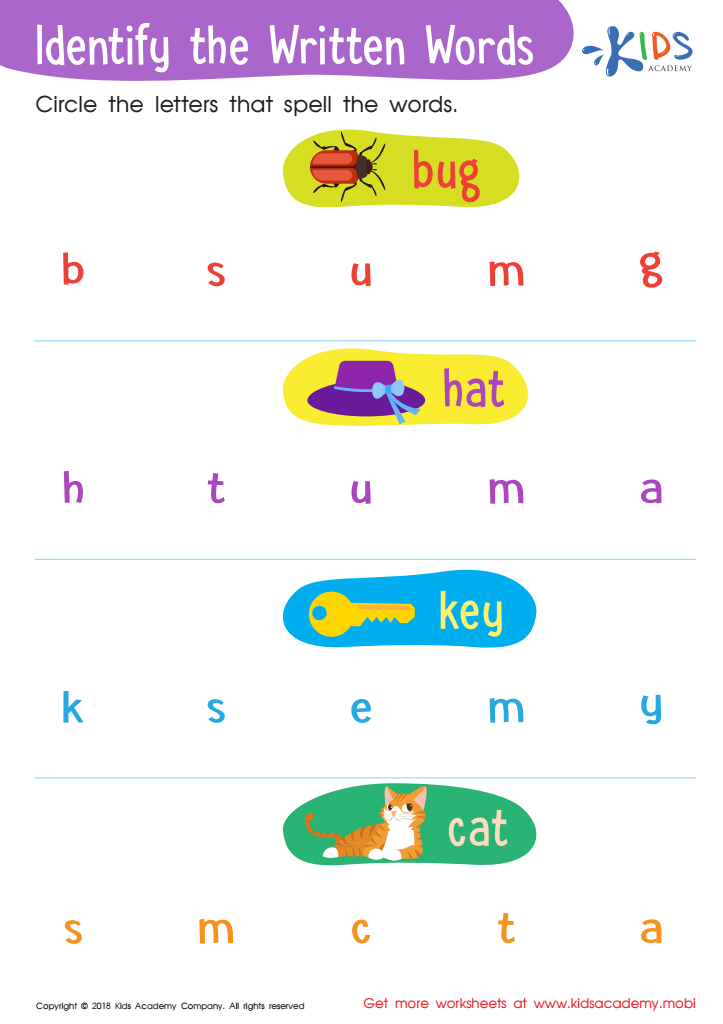

Identify the Written Words Worksheet
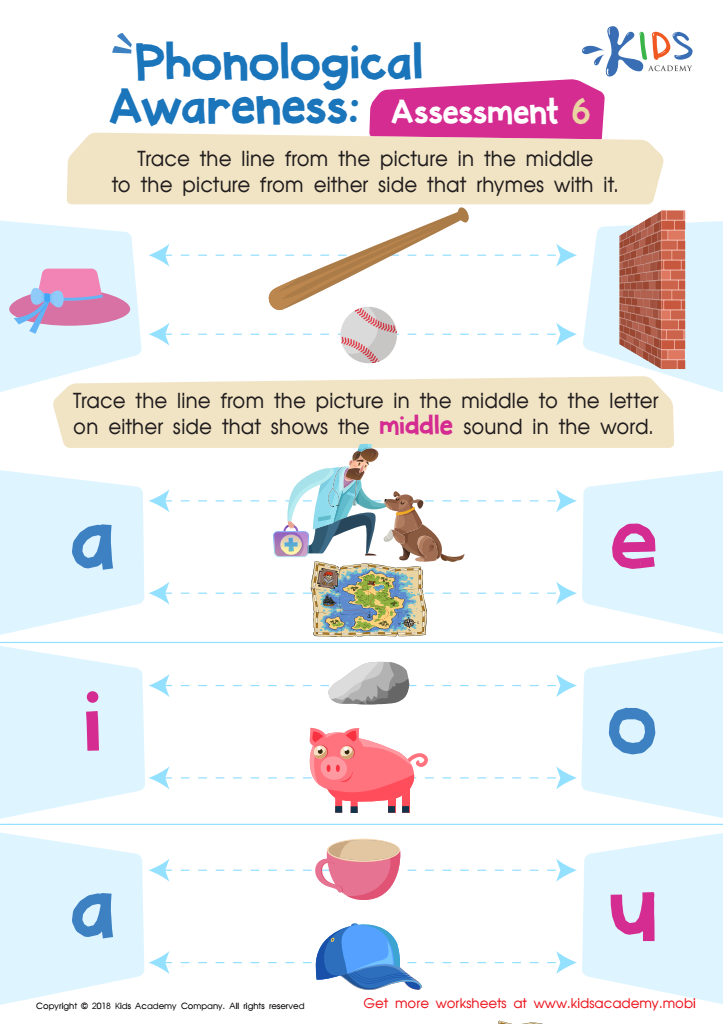

Phonological Awareness: Assessment 6 Worksheet
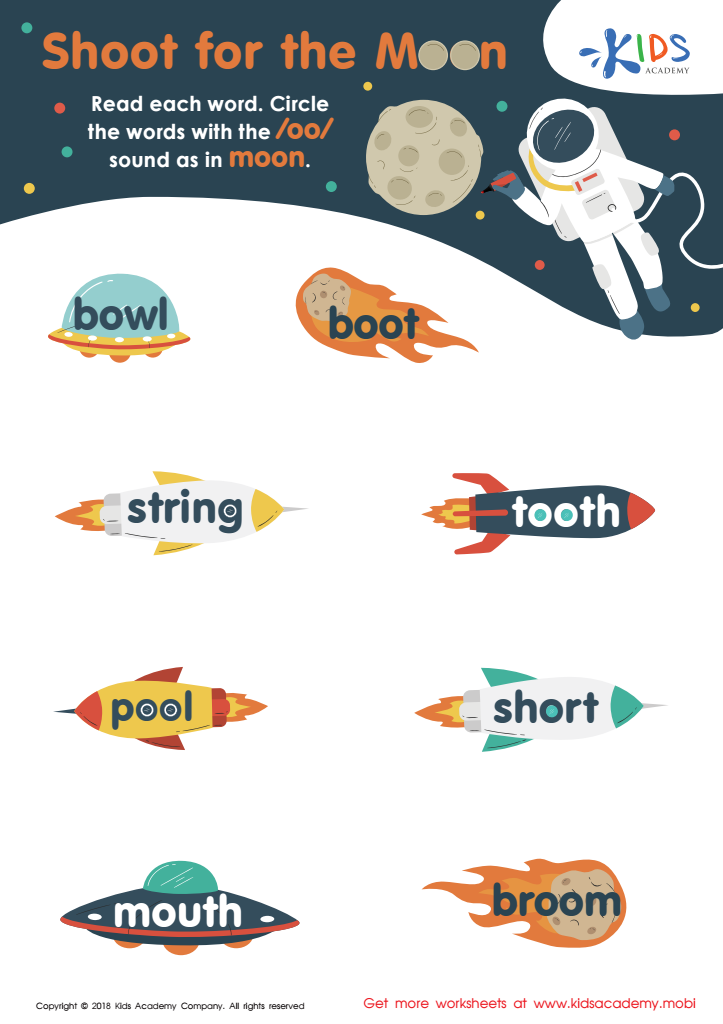

Reading: Shoot for the Moon Worksheet
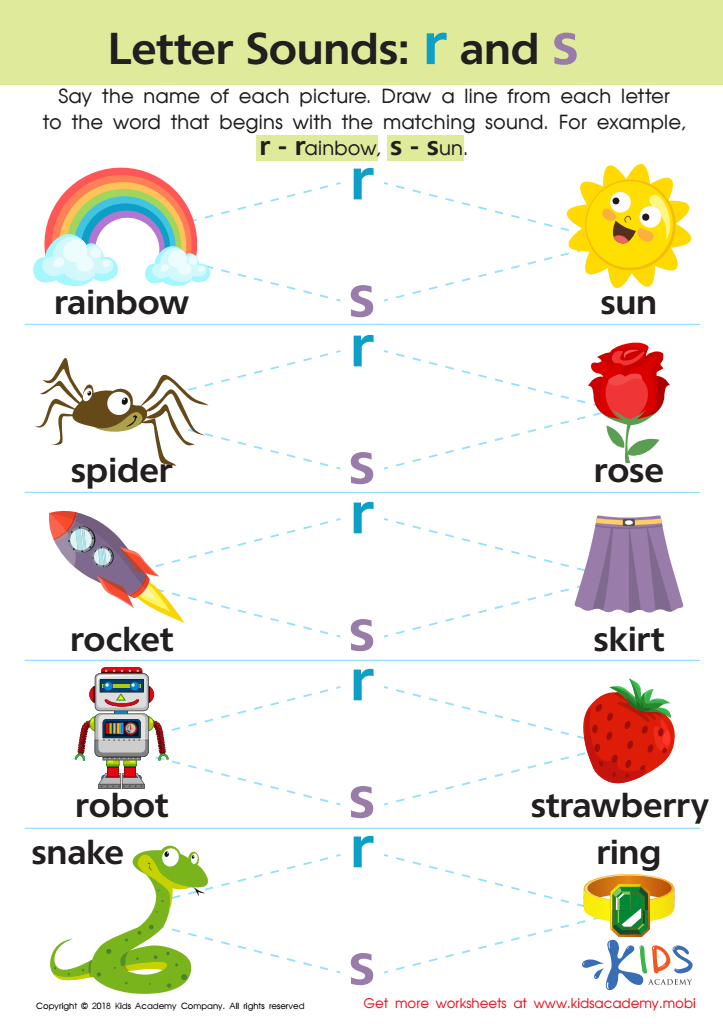

Letter R and S Sounds Worksheet
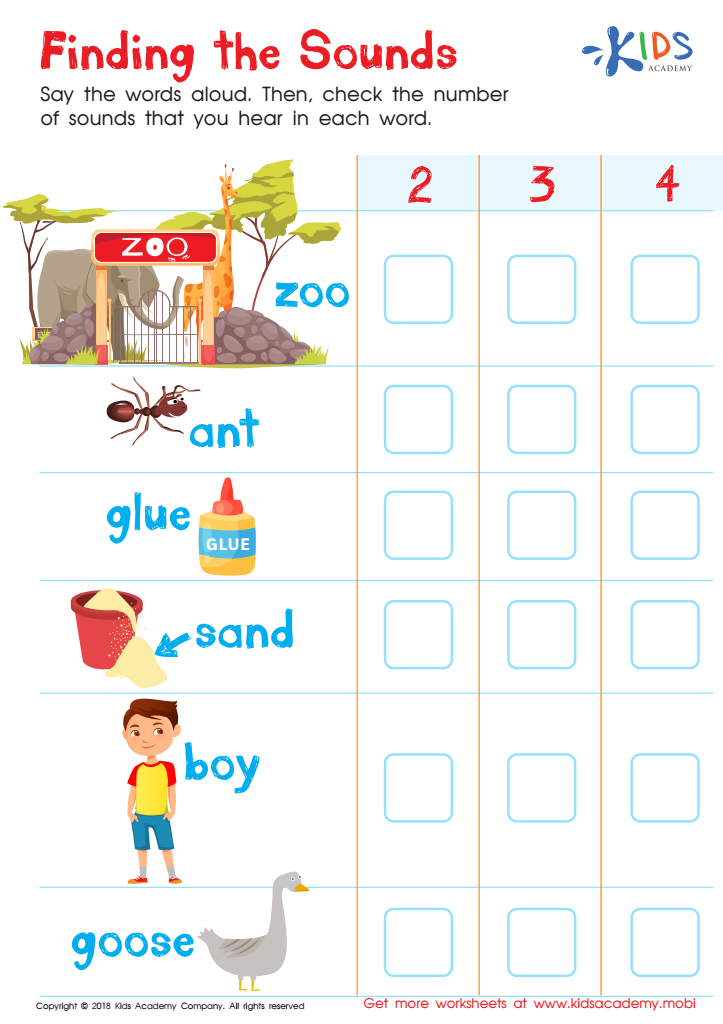

Finding the Sounds Worksheet


Phonological Awareness: Assessment 1 Worksheet
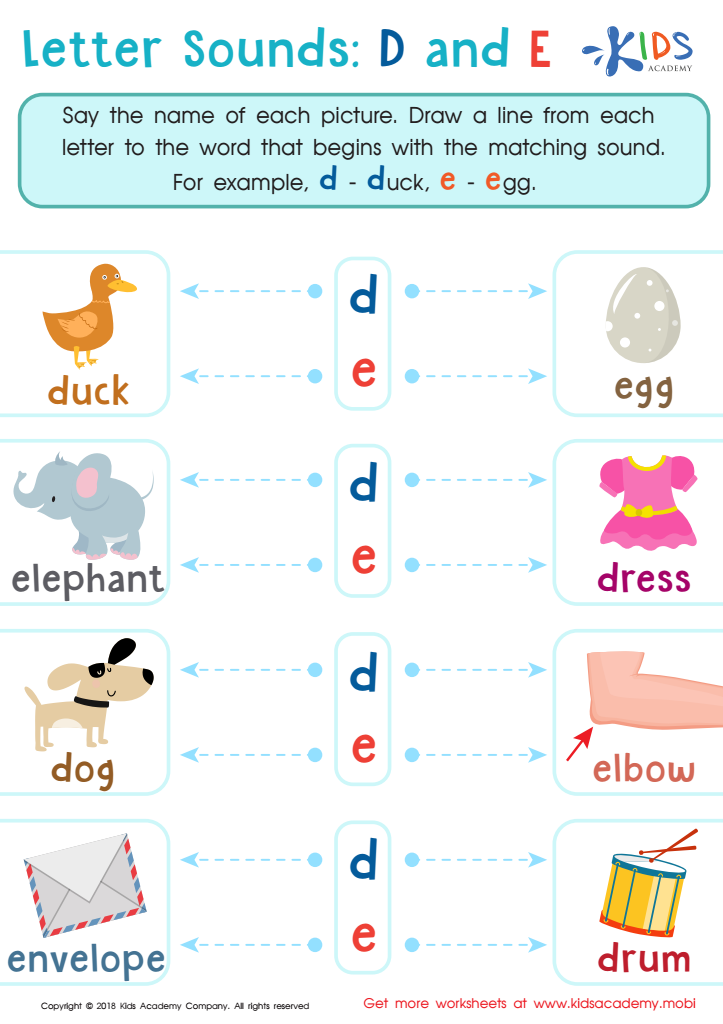

Letter D and E Sounds Worksheet
Vocabulary development and phonics are essential components of early literacy for children ages 4-8. During these critical years, children are building the foundation for language and reading skills, which are linked to their overall academic success. A strong vocabulary enhances a child's ability to express themselves and understand spoken and written language better. Engaging in rich discussions, reading diverse texts, and introducing new words can expand a child's language exposure, fostering comprehension and communication skills.
Phonics, the relationship between letters and sounds, is equally vital. Mastering phonics enables young learners to decode words, promoting reading fluency and confidence. This foundational skill equips children to tackle new texts independently, boosting their love for reading as they experience success.
Moreover, vocabulary and phonics are interconnected; a robust vocabulary empowers children to connect sounds with meanings, reinforcing their learning processes. Parents and teachers play a crucial role in nurturing these skills through interactive reading, games, and targeted instruction. By prioritizing vocabulary and phonics development, they can help young learners establish critical literacy skills that will support their educational journey and lifelong learning. Ultimately, fostering these abilities is an investment in children's futures, unlocking opportunities for personal and academic achievement.
 Assign to My Students
Assign to My Students


















